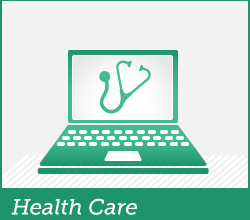The care and feeding of all social media issues fall squarely in the lap of the community manager. All the good, the bad and the ?everything else? from online physician reviews and feedback demands constant attention. The trouble is, nobody enjoys handling a hot potato, negative physician review or feedback. Hospital and medical office titles will vary, but this is where the community manager earns his or her stripes. The flattering and positive comments from patients are an effortless responsibility. The easy part is easy. But having a system and procedures to effectively respond to unpleasant (negative, sour, unhappy, dour, off-putting, detrimental) online patient feedback is where the heavy lifting truly saves the day.
The downside of negative physician reviews and comments?
The information that prospective patients find online is the DNA of a professional reputation. The negative stuff?even the mild complaint?can be reputation-erosive. It?s a bit of human nature for doctors to ignore some comments. Perhaps they believe the issue is unfair, imagined or?coming from a single patient experience?carries no weight with others. The Internet has become the front door of healthcare facilities and practitioners. Increasingly, the provider selection process of prospective patients is driven by online reputation. Provider selection, patient referrals and patient trust are easily eroded by negative reviews. In business terms, that becomes a downside of thousands of dollars in damages. Even a single online comment?positive or negative?can reach and influence dozens (perhaps hundreds) of individuals. What is the value of a single new case? Here are eight essential components that need to be part of your physician review system. #1. Operate your ?comment radar? relentlessly. Previously in this series, we cautioned that ?The single most destructive force in reputation management and social media is neglect.? If you don?t know what?s being written and read, you can?t take action. Most likely, you?ll find more good stuff than negative, but it?s important to track and respond to both. Actively listening to patient comments can help identify and avoid potential problems. #2. Read and accept comments for understanding. An issue that is real and important to the patient?s experience is at the heart of less-than-positive feedback. Further, the one-person-one-comment that you?re reading may represent be an issue for others who remained silent. In their value system, this is important to express and to resolve. Learn from what they are saying. It is dreadfully unwise to be emotional, defensive or dismissive. #3. Act fast; really fast. Seemingly minor concerns can fester and sour quickly. A delay in providing an answer suggests that nobody cares about the patient or the issue (which can make matters worse). What?s more, negative reviews can inspire other negative reviews. Prompt answers or action demonstrates concern for the relationship. In the retail world, the rule of thumb is that customers expect a response within an hour. That may not be the best standard for healthcare, but complete silence or a long delay is counter-productive. #4. Be constructive, not defensive. A negative issue or comment is significant to the patient. They are expressing their feelings, in part, with an expectation of a reply, an apology, a remedy, a solution, or an acknowledgement of their concern. Take the high road with a response that is positive, helpful and caring. Regardless of the apparent or relative importance of the patient concern, begin with a respectful response, an apology and a service solution in mind. #5. Preserve the person-to-person relationship. Extend an honest, positive and genuine response from one person to another. Avoid issuing a generic or template-sounding reply. Instead, sound real and acknowledge their feelings and their perspective, apologize for the inconvenience and express a willingness to resolve the matter. #6. Observe HIPAA guidelines and patient privacy. Speaking to a particular issue can be a delicate challenge that does not reveal that a person is or isn?t a patient. You can, however, speak in general terms regarding office policies and procedures, a positive desire to communicate, etc. And having first offered a positive public comment, it may be productive to work off-line and privately on a further resolution. #7. Present an answer or a resolution. When you are clear about the issue, be prepared to fix the problem. Although the resolution might change in conversation, present options and remain open to a satisfactory next step. And, mindful of any privacy details, whenever possible, it is valuable to publicly demonstrate that issues have been answered and/or resolved. #8. Inspire and encourage positive reviews. The majority of physician reviews tend to be positive or supportive. And it?s that kind of online endorsement or digital word-of-mouth that builds recognition, referrals and a positive professional reputation. To build positive-on-positive recognition, hospitals and medical practices need to encourage patients to use review sites whenever possible. The simple baseline is that you?ve got to ask. The online presence of positive patient feedback provides balance for readers and prospective patients. Patient surveys tell us that seven out of 10 patients will begin their search for a new doctor using online reviews. And nearly 60 percent of consumers say that doctor-rating sites are ?somewhat important? or ?very important,? according to a JAMA report. Today?s healthcare consumers?prospective patient, patient or caregiver?are digitally connected. Physician reviews and online feedback have become a core component of professional reputation and are key guideposts for the hospital and provider selection process. The bottom line is that, more than ever, physician ratings significantly influence the process of attracting new patients to your front door. Originally published on Healthcaresuccess.com






